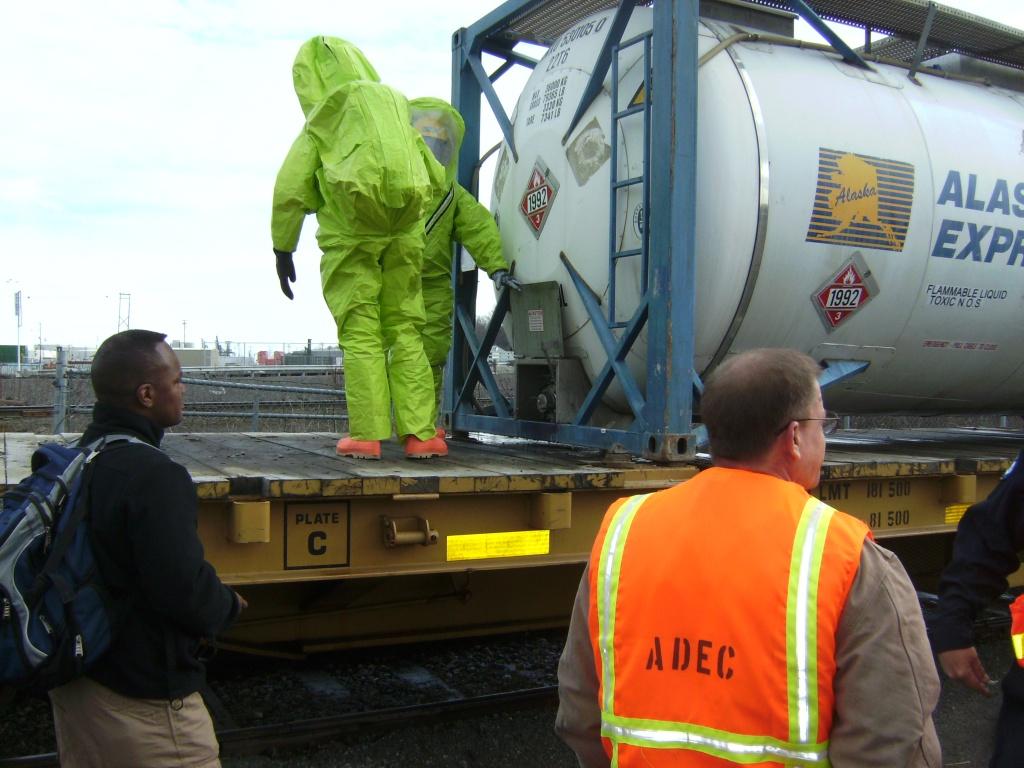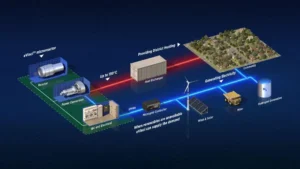The U.S. Coast Guard inspected oil storage facilities in 15 Bering Strait region communities in late July. Their final report won’t be released until this fall, but USCG officials’ preliminary observations indicate they didn’t find anything out of the ordinary in the region.
Charlene Saclamana, the Emergency Preparedness Specialist with Kawerak, says a lot of communities in the region haven’t had their tank farms and oil storage facilities inspected in over ten years.
“You know, most of our villages have storage facilities that are old and need to be replaced or upgraded. I know that the Coast Guard had been in our region facilitating the Marine Safety Task Force.”
The Coast Guard’s Marine Safety Task Force (MSTF) is responsible for inspecting bulk oil storage facilities across the state, which are supplied by barge, to help prevent future spills. According to Lieutenant Commander Jereme Altendorf, Sector Anchorage oversees almost 400 facilities throughout Alaska, including Nome and the Bering Strait Region. In the past, MSTF has discovered spills in some communities, but this time around Altendorf says:
“Most of the facilities are OK. We’re seeing a lot of administrative issues. So one of the lead causes of spills besides just facility deterioration is poor administrative management of the facilities. So, lack of paperwork, lack of exercising your skill plans, lack of understanding of what your regulatory requirements are for paperwork, are all things that can cause or lead to spills.”
So far this year, Saclamana says she hasn’t received notifications of any spill from communities in the Bering Strait region.
According to the Alaska Department of Environmental Conservation, the most recent fuel spills in the Bering Strait Region happened in Nome and St. Lawrence Island last year.
Despite the aging tank farms in the Bering Strait region, the MSTF did not report finding any immediate risks of oil spills or anything out of the norm.
However, Altendorf says a general lack of compliance administratively from local facility operators is something that can lead to spills, which the Coast Guard wants to prevent.
“We believe that the regulations itself put the onus of operating safely and the risk management of a bulk oil storage facility on the owner and/or operator. If they can’t do their job and the spill occurs, we expect the owner/operator to respond appropriately, and the Coast Guard also works with public safety officials locally. If there is a spill from a facility, try to keep it localized as much as possible until we can respond with a more comprehensive response.”
The after-action report from MSTF’s inspections, which Altendorf hopes will be released later this fall, will include recommendations for communities to upgrade their facilities and fix any non-compliance issues related to oil storage.
Saclamana believes the Coast Guard’s final report and recommendations will change the way communities in the Bering Strait region manage their oil storage facilities.
“And whatever report that the Coast Guard is willing to provide and share with them, it would show the age of tank farm facility, and they would be able to justify the need for replacing a tank farm.”
Given the sheer size of their area of responsibility, Altendorf says the Coast Guard Sector Anchorage can’t inspect each oil storage facility every year, but MSTF will be back in the Bering Strait region next summer for more inspections.
As a whole, the Coast Guard will maintain its presence in Western Alaska for the rest of the summer while its forward operating location in Kotzebue is active.
Anyone witnessing an oil spill should immediately contact the National Response Center: 1-800-424-8802.
Image at top: Alaska DEC conducting a spill response drill in 2010. Photo: Alaska Department of Environmental Conservation.





